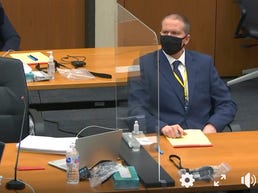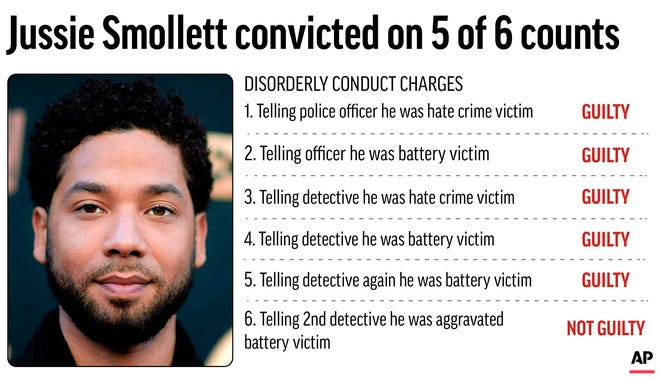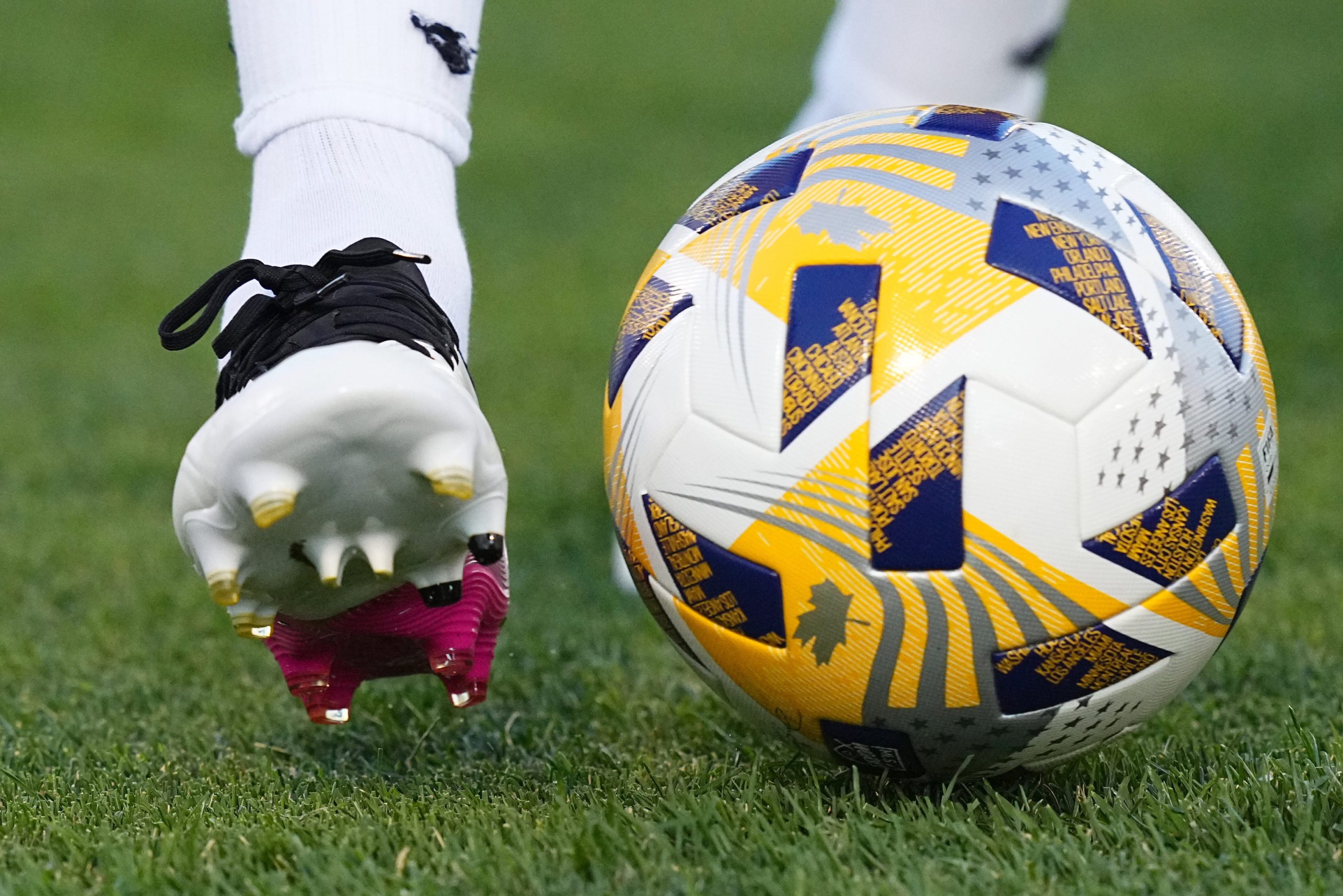
MINNEAPOLIS — A jury has been chosen to determine the fate of a former Minneapolis police officer who knelt on George Floyd’s neck for more than nine minutes, with nine women and six men deciding a case that forced a renewed reckoning over racial inequality in the U.S.
After 11 days of questioning by defense and prosecution attorneys, jury selection wrapped up Tuesday when the 15th juror was selected. Twelve of the jurors will deliberate, two will serve as alternates and one will be dismissed if all the others show up for opening statements Monday.
The panel includes six jurors of color, including three Black men, one Black woman and two mixed-race women. Nineother jurors are white.
Floyd, a Black man, died in police custody on May 25, 2020, after Chauvin, who is white, pressed his knee against Floyd’s neck following a confrontation. Lying on a Minneapolis street under Chauvin, Floyd cried out, “I can’t breathe” more than 20 times.
His death sparked protests worldwide and calls for change in the nation’s criminal justice system. Some of the protests escalated into rioting in parts of the Twin Cities.
Chauvin is charged with second-degree murder, third-degree murder, and second-degree manslaughter. If convicted of the most serious charge, he could face a prison sentence ranging from about 10 and a half years to 15 years under Minnesota sentencing guidelines for first-time offenders.
The projected four-week trial is scheduled to start on Monday amid continuation of the intense security that was in place inside and outside the Minneapolis court throughout the questioning of potential jurors that began March 9.
The court proceedings have drawn heavy news coverage, both in Minnesota and nationally.
The selection process showed that most of the jurors had seen at least portions of the now-famous video of the tragic episode that was taken by a bystander went viral after it was posted on Facebook. However, the jurors said they could set personal opinions aside and assess the case solely on the evidence that will be introduced in court.
That evidence is expected to include some details of a previous Minneapolis Police Department arrest of Floyd in 2019.
The weekslong process was dramatic at times, with some potential jurors becoming emotional. The defense tried to delay or move the proceedings over a $27 million civil settlement paid to Floyd's family that was announced amid jury selection. Hennepin County District Court Judge Peter Cahill denied those motions. But he excused three prospective jurors who said the settlement might give them doubts about Chauvin’s innocence.
Alternate jurors will step in if any of the 12 jurors required for the trial become ill or have an emergency that requires them to leave during deliberations. However, the alternates won’t be known until Cahill dismisses them, the court said last week.
The USA TODAY Network will be bringing you live coverage of the Derek Chauvin trial. Refresh this page updates. Follow our team of reporters on Twitter here. For news delivered to your inbox, sign up for the Daily Briefing newsletter.
Here are the jurors serving on Derek Chauvin's trial
The jurors come from a wide array of backgrounds. Some are well-versed in the case; others haven't followed the months of developments.
The panel includes a chemist, a nurse who's been caring for patients on ventilators, a retiree and a social worker. Seven of the jurors are in their 20s or 30s, three in their 40s, four in their 50s and one in her 60s.
Given the circumstances of Floyd’s death — a Black man dying under the knee of a white police officer — the racial makeup of the jury is a key concern. Eight of the jurors self-identify as white, two as multiracial and four as Black, according to the court.
Here's a quick look at who is serving on the jury:
- A white man in his 20s who works as an accountant, has a 6-month-old Bernese mountain dog and plans to move out of state at the end of May
- A white woman in her 20s who works as a social worker and recently was married
- A white woman in her 50s who is a self-described animal lover with a passion for affordable housing
- A white woman in her 40s who works in insurance and said she loves the state of Minnesota
- A Black woman in her 60s who retired from marketing and said she loves spending time with her grandkids and volunteering at a youth organization.
- A white nurse in her 50s who works with ventilated COVID-19 patients
- A mixed-race woman in her 40s who works in company reorganizations
- A Black man in his 40s who works in management and has lived in Hennepin County for two decades
- A white woman in her 50s who works in healthcare and likes to ride her motorcycle
- A Black man in his 30s who works in banking and coaches youth sports
- A white woman in her 50s who works at a nonprofit and is the single mother of two teenage sons
- A Black man in his 30s who works in tech and immigrated from Africa to the U.S.
- A white business auditor in his 30s
- A mixed-race woman in her 20s who said she registered to vote in hope of getting a jury summons for the Chauvin case
- A white chemist in his 20s who works on environmental testing and plays Ultimate Frisbee
How will lawyers find an impartial jury? 12 jurors must set aside what they saw in the George Floyd video
Key issues jurors have been asked about
Dozens of potential jurors were vetted by prosecution and defense lawyers, including whether they could put aside their opinions on the case, their thoughts on social movements, and their opinions about the protests that defined last summer. The vetting in at least one case included a review of a potential juror's social media activity.
All the jurors, including those who were selected, were asked about the video showing Chauvin pressing his knee on Floyd's neck for more than 9 minutes. Some said they were struck by the footage; others had seen only short clips. Only a few said they hadn't seen any video of the fatal encounter.
“It was emotional. I decided I didn’t want to watch it," one juror said.Another said it was "too disturbing" to watch the full video.
All were asked about the Black Lives Matter and Blue Lives Matter movements. They offered a variety of opinions, from offering strong support to saying both movements have become marketing schemes for politicians and businesses.
One said Black Lives Matter hasn't always taken "the best actions, but I do believe that Black lives matter." Another said he thought Blue Lives Matter was only “a thing” to counter the Black Lives Matter movement.
Many potential jurors expressed unfavorable attitudes toward Chauvin, with many saying it stemmed from the video of Floyd's arrest. But the jurors chosen said they would presume Chauvin innocent and make their decision solely on the evidence presented at trial.
Some of the interviews with jurors provided hints to what could shape their verdict. One noted he wanted to hear from Chauvin during the trial to offer his side of what happened. Another said she wanted to better understand police training and whether placing a knee on someone's neck was allowed.
Historic settlement marked flashpoint in jury selection
As attorneys were attempting to ferret out potential jurors in Derek Chauvin's trial who were swayed by news coverage of George Floyd's death, the city of Minneapolis approved a $27 million civil settlement with Floyd's family. That prompted the defense to renew its request that the trial be delayed or moved.
News of the settlement broke over a lunch break on the fourth day of jury selection. Ben Crump, the lead attorney for Floyd's family, called it the largest pretrial settlement in a wrongful death case.
The following week, seven jurors who had been chosen before the announcement were called back and questioned over whether it threatened their impartiality. Two were dismissed after saying it did.
At least three other potential jurors were dismissed because they said they couldn't be impartial given the settlement. Others said they had heard of the settlement, but it wouldn't influence them.
Cahill denied the defense's motions to move or delay the trial due to the settlement announcement.
More:Minneapolis reaches $27M settlement with George Floyd’s family in wrongful death lawsuit
The announcement "was incredibly bad timing and extremely damaging to the defense and maybe the state," said Mary Moriarty, former chief public defender of Hennepin County, Minnesota.
National Guard, police plan increased presence next week
While people have protested nearly every day of Derek Chauvin's trial, officials said Monday afternoon there have been no arrests related to the trial or reports of property damage.
Police officials said they will increase their presence next week as opening statements begin.
“It will not be a dramatic increase,” Minnesota Department of Public Safety Commissioner John Harrington said at a news conference. “At this time, there is no information or intelligence that would justify a major increase in our posture."
He added there have been no credible threats to the trial or the Twin Cities area.
In preparation for the trial, the Hennepin County Government Center was surrounded with fencing and concrete barriers. Nearby businesses were boarded up.
Members of the Minnesota National Guard are stationed outside the courthouse.
“We remain ready to respond, and we are committed to preventing bad things from happening,” Harrington said.








